Step into Greece, a country where history whispers from ancient ruins and the spirit of democracy and philosophy echoes through bustling city streets. Known as the Hellenic Republic, this Mediterranean gem offers a time-traveling opportunity. Each city in Greece tells a unique story, blending the echoes of ancient times with the vibrant pulse of modern life. So, if you want to know which one of them you should visit one day, this article might help you make the decision.

✅ AI Essay Writer ✅ AI Detector ✅ Plagchecker ✅ Paraphraser
✅ Summarizer ✅ Citation Generator
What Do You Need to Know About Greece?
Greece, located in southeastern Europe on the Balkan Peninsula, is a country surrounded by the Mediterranean Sea to the south and the Ionian Sea to the west. Greece shares borders with Albania, North Macedonia, Bulgaria, and Turkey. Its geographical location has made it a crossroads of civilizations for thousands of years, influencing its culture, art, and architecture.
Greece holds colossal cultural significance as the birthplace of Western civilization. It is often referred to as the cradle of democracy, philosophy, literature, and the Olympic Games. The ancient Greeks made serious contributions to mathematics, science, and the arts, leaving a lasting legacy that continues to shape modern thought and culture. The Greek War of Independence in the early 19th century led to the establishment of the modern Greek state, and this period saw urban development with neoclassical and eclectic architectural styles. Athens, in particular, experienced rapid growth during this time.
In the modern era, Greece has continued to develop its cities, embracing contemporary architectural styles while preserving its historical heritage. Athens, Thessaloniki, and other urban centers have been modernized and seen infrastructure improvements as well. Throughout its history, Greece’s urban development has been shaped by a combination of cultural influences, historical events, and changing political dynamics.
Athens: The Historical Heart
- Athens is home to ancient landmarks like the Acropolis and Parthenon.
- The city offers a rich blend of historical sites, museums, and contemporary art scenes.
- Athens is renowned for its vibrant food markets and traditional Greek tavernas.
Athens, the epicenter of the Hellenic Republic, is the essence of ancient Greek culture and modern vibrancy. This city is Greece’s capital and basically a living museum of human history. The Acropolis, an ancient citadel that dominates the city’s skyline, offers a window into the world of classical Greece, with the Parthenon as its crown jewel. Below, the Plaka neighborhood, with its maze of winding streets and neoclassical charm, is a hub for both locals and tourists, full of quaint cafes, traditional tavernas, and artisan shops.
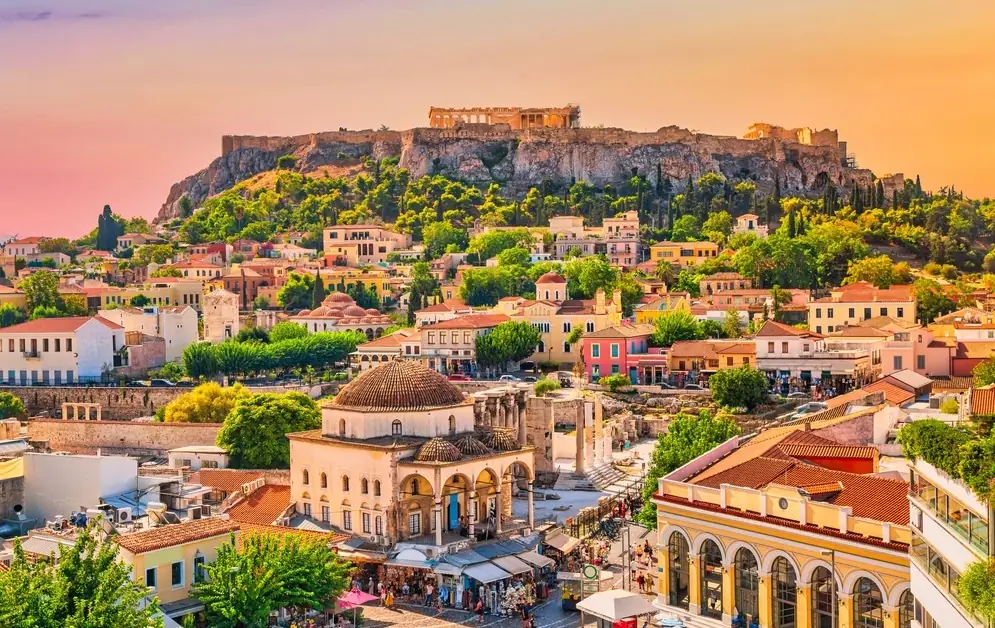
Athens offers an inspiring mix of history and modernity, where ancient heritage meets a diverse urban vibe. The city’s streets are alive with colorful murals and contemporary art galleries, complemented by an energetic nightlife. Food lovers will find paradise in Athens’ diverse culinary scene, from high-end restaurants to authentic street food stalls serving traditional Greek delicacies. More than just a historical landmark, Athens stands as a vibrant proof to the lasting and evolving spirit of Greek culture.
Thessaloniki: A Cultural Melting Pot
- Adorned with Byzantine walls, Turkish baths, and Roman-era structures, offering a unique mosaic of historical periods and architectural styles.
- Celebrated for its dynamic cultural scene, hosting numerous festivals throughout the year, including the famous Thessaloniki International Film Festival.
- As the second-largest city in Greece, Thessaloniki serves as a crucial economic and commercial hub.
Thessaloniki, the cultural capital of northern Greece, is a rich mosaic of Mediterranean histories. As you wander through its streets, you’re exploring layers of Byzantine and Ottoman influences, evident in everything from the architecture to the lively buzz of city life. The iconic White Tower on the waterfront marks the start of a historical journey through countless squares and narrow alleys, each whispering stories of ancient empires. Up in the Ano Poli (Upper Town), you can step back into the Byzantine era, where ancient fortifications open stunning views over the Gulf.
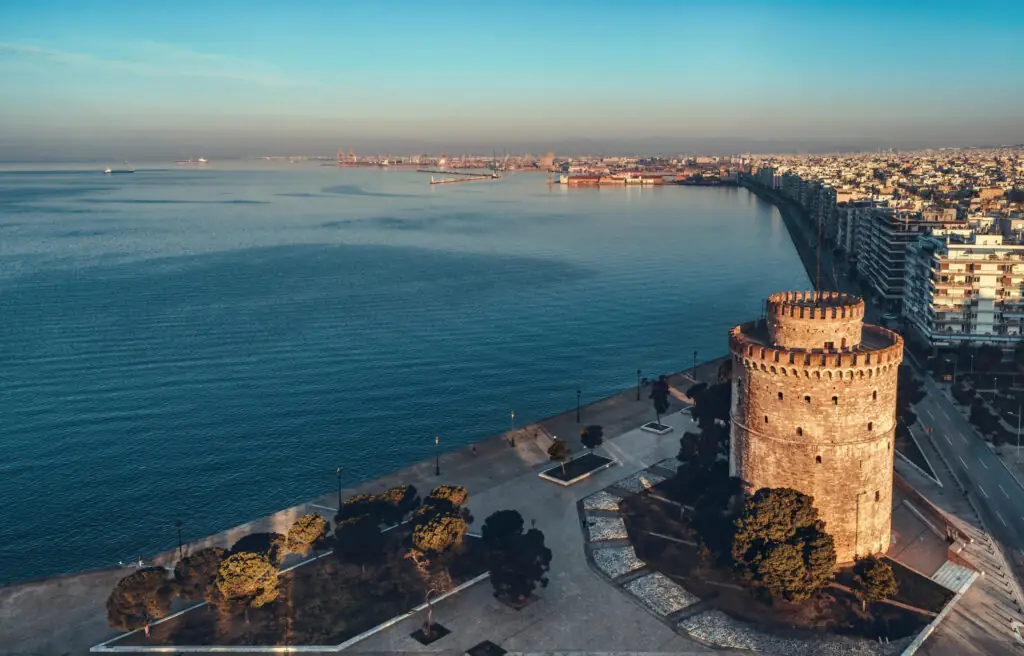
The city’s pulsating cultural life is also evident in its food scene, where traditional Greek flavors blend seamlessly with Balkan and Mediterranean touches, making every meal a delightful experience. Thessaloniki also serves as a gathering place for festivals, with events like the renowned Thessaloniki International Film Festival drawing artists and cinephiles from around the world. This city, with its deep history, diverse culture, and creative energy, is a rich find for anyone passionate about the arts and eager to dive into Greek urban culture.
Patras: The City of Festivals
- Famous for hosting one of Europe’s largest and most colorful carnivals.
- Offers a mix of ancient ruins, medieval architecture, and modern cultural facilities.
- Key port city that plays a significant role in Greece’s economy and trade.
Patras, Greece’s third-largest city, is a kaleidoscope of culture and festivity, most famously known for hosting one of Europe’s largest and most exuberant carnivals. This annual event transforms the city into a true spectacle of costumes, floats, and parades, attracting visitors worldwide. But Patras’ allure extends beyond its carnival. The city (like most in Greece) also has a rich historical fabric. Its main landmarks are the medieval castle with a panoramic view and the ancient Roman Odeon.
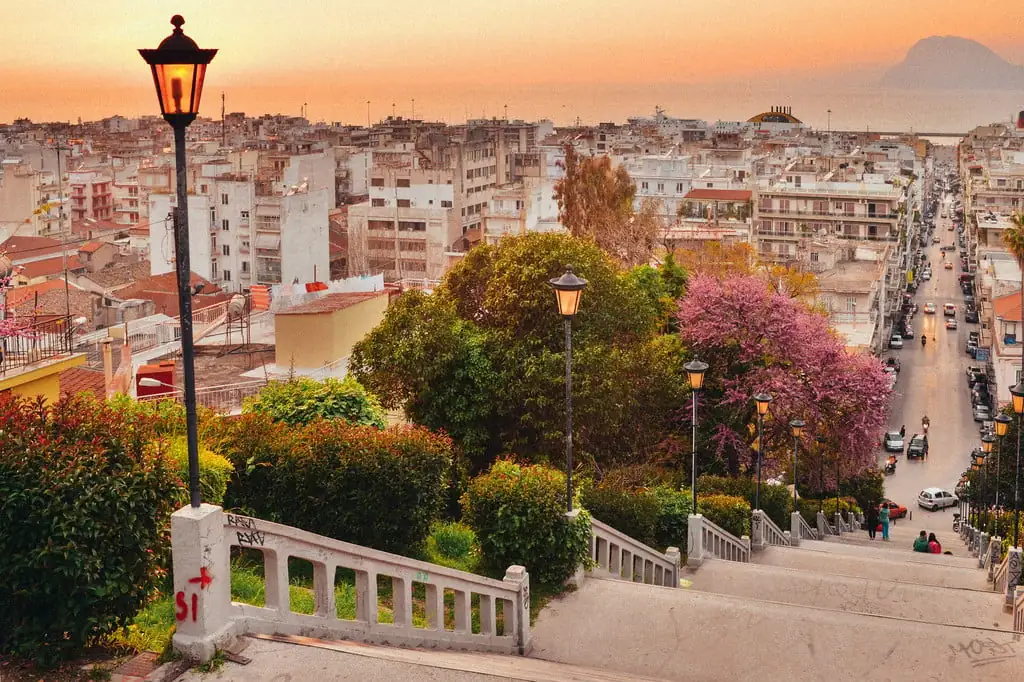
Patras is also a center for education and the arts, with a large university community and numerous cultural institutions. The city’s port is a gateway to the Ionian Islands and Western Europe, making it a strategic economic and transport center. Patras’ blend of historical sites, cultural vibrancy, and its role as a modern urban center makes it a unique destination for visitors seeking a multifaceted experience in Greece.
Heraklion: Gateway to Ancient Crete
- Proximity to the ancient ruins of Knossos, the center of Minoan civilization.
- Combines the charm of urban life with the natural beauty of Crete’s landscapes.
- Known for its unique Cretan cuisine, blending traditional Greek and Mediterranean flavors.
Heraklion, the bustling capital of Crete, is a vibrant mosaic of ancient history and modern Cretan life. This city, the largest on the island, serves as the primary gateway to Crete’s legendary past, with the ancient ruins of Knossos, the center of Minoan civilization, just a stone’s throw away. Heraklion’s streets are lined with Venetian fortifications, testifying to its historical significance as a Mediterranean stronghold.
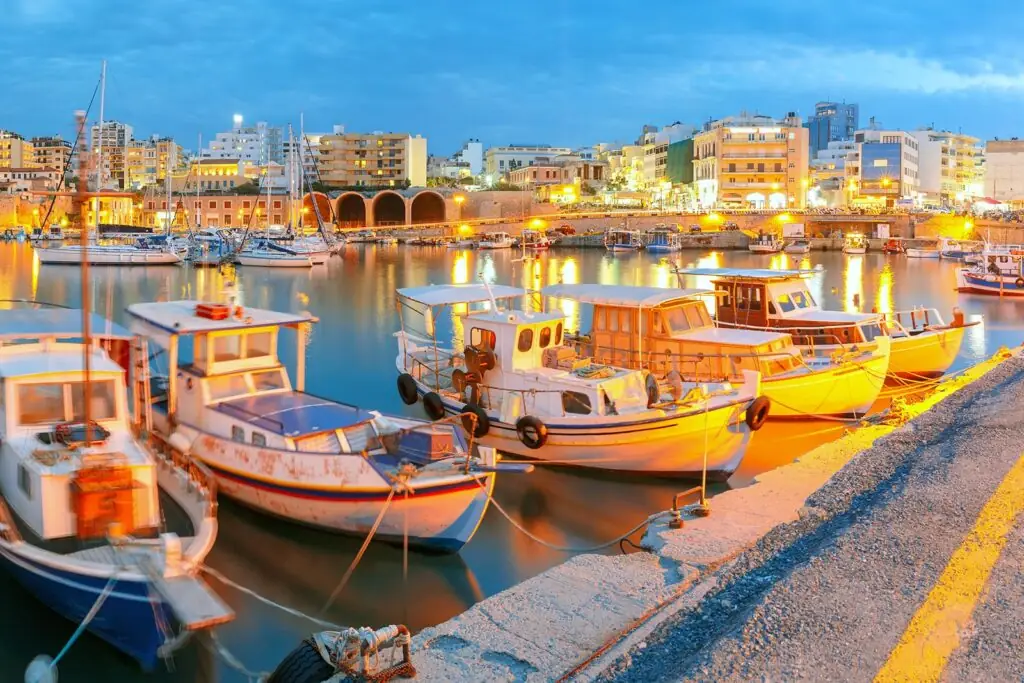
The city’s Archaeological Museum is among the most important in Greece, housing a vast collection of Minoan artifacts. Modern Heraklion pulsates with life, its lively markets, and bustling cafés offering a taste of contemporary Crete. The city’s port, one of the busiest in the Mediterranean, connects Heraklion with other Greek cities and islands, making it a bustling hub of activity. For tourists, Heraklion is not just a stopover but a destination in itself, offering a blend of historical intrigue, cultural richness, and a gateway to explore the enchanting landscapes of Crete.
Rhodes: The Island Metropolis
- Famous for its well-preserved medieval city and the Palace of the Grand Master.
- Offers a mix of ancient history, beaches, and a vibrant nightlife.
- Reflects a blend of various cultures, including Greek, Ottoman, and Italian influences.
Rhodes, the principal city of the island bearing its name, is a symphony of history, culture, and natural beauty. Renowned for its well-preserved medieval city, a UNESCO World Heritage Site, Rhodes is a journey back in time. The Street of the Knights, the Palace of the Grand Master, and the ancient walls tell tales of the island’s past as a stronghold of the Knights Hospitaller. Beyond its historical grandeur, Rhodes is an island paradise, boasting some of the Aegean’s most beautiful beaches and a temperate climate.
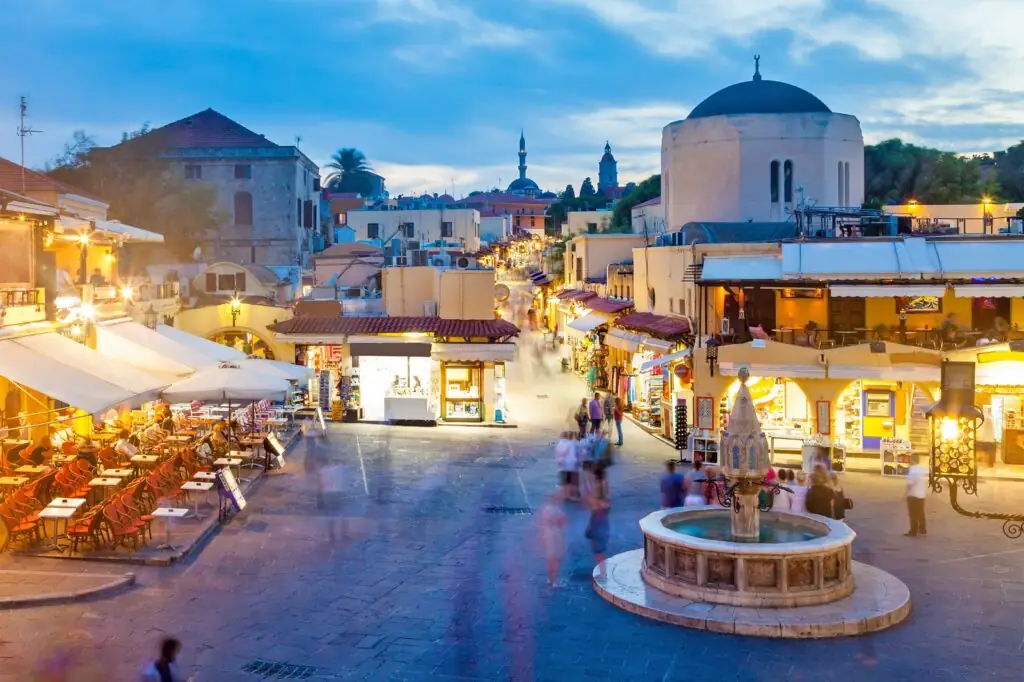
The city’s modern neighborhoods contrast with the old town’s medieval architecture, offering visitors a cosmopolitan experience with lively bars, shops, and restaurants. Rhodes’ strategic location has made it a melting pot of cultures throughout history, and this diversity is reflected in its culinary, linguistic, and architectural heritage. For those seeking a blend of historical exploration, natural beauty, and a vibrant urban atmosphere, Rhodes stands out as a premier destination in the Greek Islands.
Corfu: A Venetian Dream
- Characterized by its unique Venetian architecture and rich historical tapestry.
- Combines cultural heritage with stunning natural landscapes and beaches.
- Known for its strong musical tradition and numerous philharmonic orchestras.
Corfu, the gem of the Ionian Sea, is a picturesque blend of Greek and Venetian influences, a legacy of its storied past. The city of Corfu, also known as Kerkyra, is characterized by its elegant Venetian architecture, narrow cobblestone streets, and verdant landscapes. The Old Town, a UNESCO World Heritage site, is a maze of graceful Venetian buildings and Byzantine churches, interspersed with bustling squares and hidden gardens.

Corfu’s history is a tapestry of various dominations, each leaving its mark, from the Venetians to the French and the British. This rich cultural heritage is evident in the city’s art, cuisine, and music, making Corfu a unique blend of Mediterranean cultures. The island’s stunning beaches, crystal-clear waters, and lush interior offer a natural paradise for visitors. Corfu’s vibrant cultural life, including music festivals and art exhibitions, adds to its appeal as a tourist destination. The city, with its unique blend of historical elegance, cultural diversity, and natural beauty, makes Corfu an enchanting destination in the Greek archipelago.
Larissa: A Blend of Ancient and Modern
- Home to significant archaeological sites, reflecting its rich ancient and Byzantine history.
- An important hub for agriculture in Greece, particularly known for its fertile plains.
- Offers various cultural events, museums, and theaters, contributing to a vibrant urban life.
Larissa, situated in the fertile plains of Thessaly, is a city where ancient Greek and Byzantine history seamlessly flows into modern Greek life. As one of the oldest continuously inhabited cities in Greece, Larissa’s history is palpable in its ancient ruins and archaeological sites. The city’s ancient theater, dating back to the 3rd century BC, is the main proof of its rich cultural past.
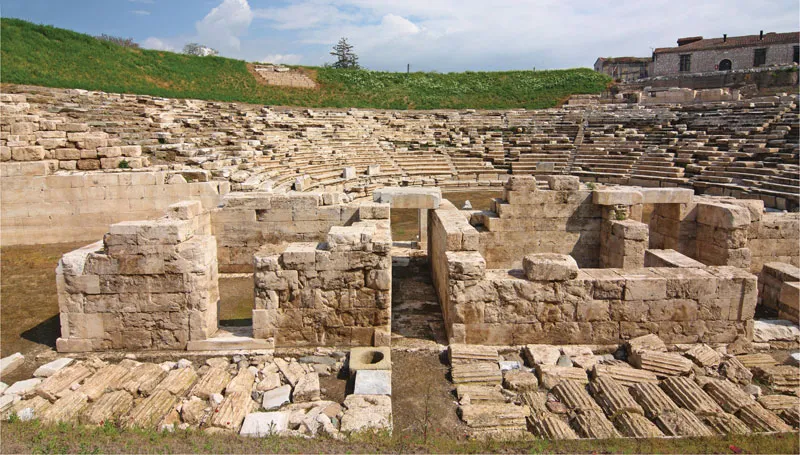
Larissa’s importance in Greek mythology, being the birthplace of Hippocrates, the father of medicine, adds to its historical significance. The city buzzes with energy, from its thriving café scene where locals sip coffee under the sun, to the busy markets filled with chatter and colorful goods, and the lively nightlife that lights up the evenings. However, the contemporary vibes are not the only thing that make Larissa appealing. It’s also steeped in a rich historical and cultural heritage that adds a unique flavor to the city experience. Nestled between the majestic Mount Olympus and Mount Kissavos, Larissa opens up the natural beauty of Thessaly, offering easy access to outdoor adventures. Whether you’re a city explorer or a nature lover, Larissa provides the best of both worlds.
Volos: The Coastal Charm
- Near mythical locations like Mount Pelion, home of the Centaurs, and the Sporades islands.
- Famous for its ‘tsipouradika’ taverns, offering local spirits and seafood.
- Showcases a blend of neoclassical buildings and modern urban development.
Volos, locatec at the foot of Mount Pelion and beside the Pagasetic Gulf, is a city where myth and reality come together. Known in Greek mythology as the home of the Centaurs and the departure point for the Argonauts, Volos is a city surrounded by legends. As this is a coastal port city, from here you cam also travel to to the enchanting villages of Pelion and the beautiful Sporades islands.
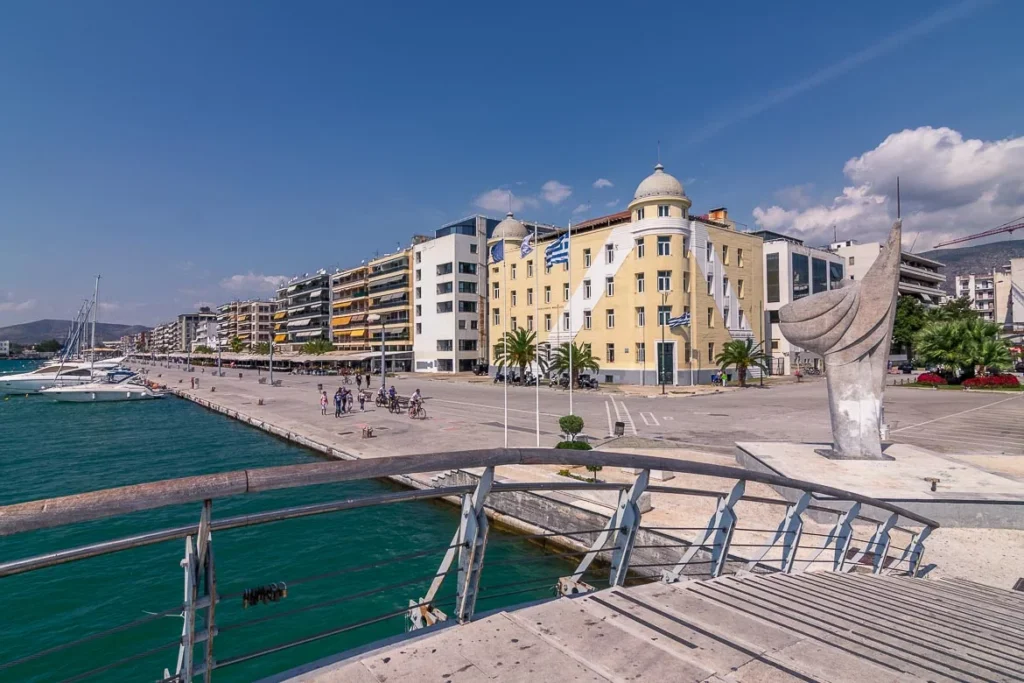
Volos’ waterfront is lined with tsipouradika, traditional taverns serving local spirits and mezedes, offering a taste of authentic Greek hospitality. The city’s architecture is a mix of neoclassical buildings and modern structures. Volos’ Archaeological Museum is a place where you can get acquainted with the region’s rich ancient history. It also has a vibrant cultural scene, with festivals and events, so it’s not just history and legends. For travelers seeking a mix of mythical charm, culinary delights, and seaside relaxation, Volos is a perfect destination.
Ioannina: The Cultural Crossroads
- Known for its impressive castle, one of the oldest in Greece, with a rich history.
- Surrounded by stunning natural landscapes, including Lake Pamvotida.
- A history of multicultural influences, visible in its architecture, cuisine, and traditions.
Ioannina, the capital of Epirus, is a city where history, culture, and natural beauty intersect. Dominated by its ancient castle, one of the oldest in Greece, Ioannina’s history combines Byzantine, Ottoman, and Jewish influences, each leaving an indelible mark on the city’s character. The castle town, with its old mosques and synagogues, narrow alleys, and traditional silver shops, is a journey through time. Ioannina’s Lake Pamvotida, with its mythical island, adds a layer of mystique to the city’s landscape.
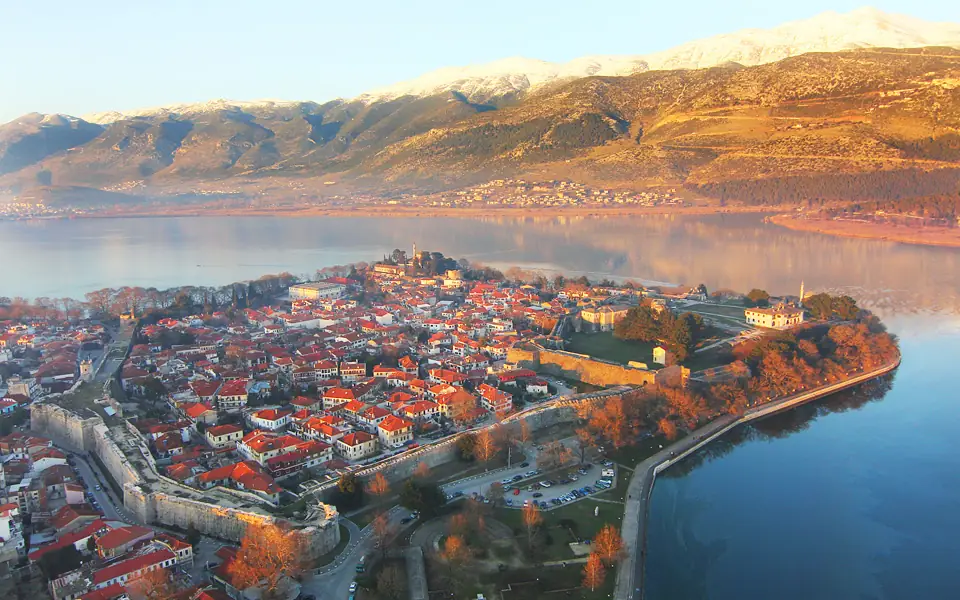
Despite the prominent historical charm, the city is also a vibrant center of learning and culture, with its universities injecting youthful energy into its streets. Ioannina’s culinary scene is much multicultural, offering a blend of Greek, Balkan, and Mediterranean flavors. For those interested in exploring the cultural crossroads of Greece, Ioannina presents a unique experience, surrounded by the stunning landscapes of Epirus.
Chania: Crete’s Coastal Gem
- Famous for its picturesque old Venetian harbor and lighthouse.
- Showcases influences from Venetian, Egyptian, and Ottoman occupations.
- Proximity to some of Crete’s most beautiful beaches and the White Mountains.
Chania, the picturesque city on the northwest coast of Crete, is a blend of historical layers and natural beauty. The city’s jewel, its Venetian harbor, is a postcard-perfect scene with a historic lighthouse, colorful buildings, and bustling waterfront cafes. Chania’s Old Town, a maze of narrow winding streets, shows the city’s rich history, where Venetian, Ottoman, and Greek influences converged to create a unique atmosphere.
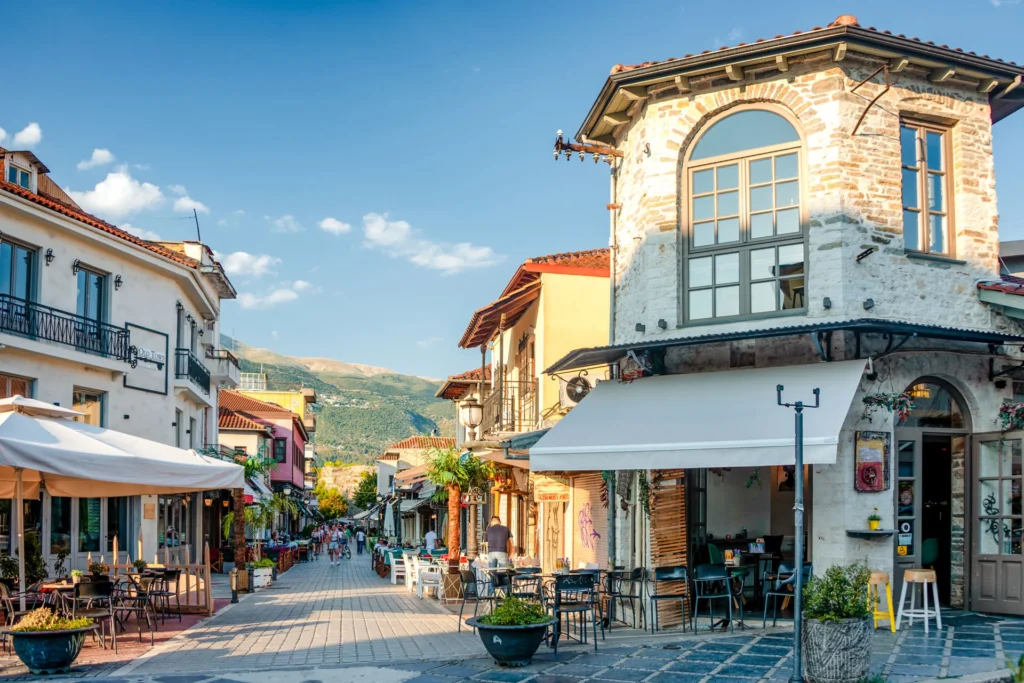
If you’d like to learn more about Chania’s history, a visit to the Archaeological Museum is a must. This museum has all the artifacts from various periods, including Minoan, Hellenistic, and Roman, shedding light on the island’s rich past. The Maritime Museum of Crete, located in the Venetian Arsenal, too provides insight into the region’s seafaring traditions.
Conclusion
Greece’s cities are a fascinating blend of history, culture, and modernity. Each city offers its unique character and charm which explains why this country has become a go-to destination for most travellers. Whether you’re drawn to the historic metropolises of Athens and Thessaloniki or the island allure of Rhodes and Corfu, Greece offers unmatched exploration opportunities. Visiting these cities will open the doors to understanding the heart and soul of Greek culture.
FAQ
Follow us on Reddit for more insights and updates.





Comments (0)
Welcome to A*Help comments!
We’re all about debate and discussion at A*Help.
We value the diverse opinions of users, so you may find points of view that you don’t agree with. And that’s cool. However, there are certain things we’re not OK with: attempts to manipulate our data in any way, for example, or the posting of discriminative, offensive, hateful, or disparaging material.